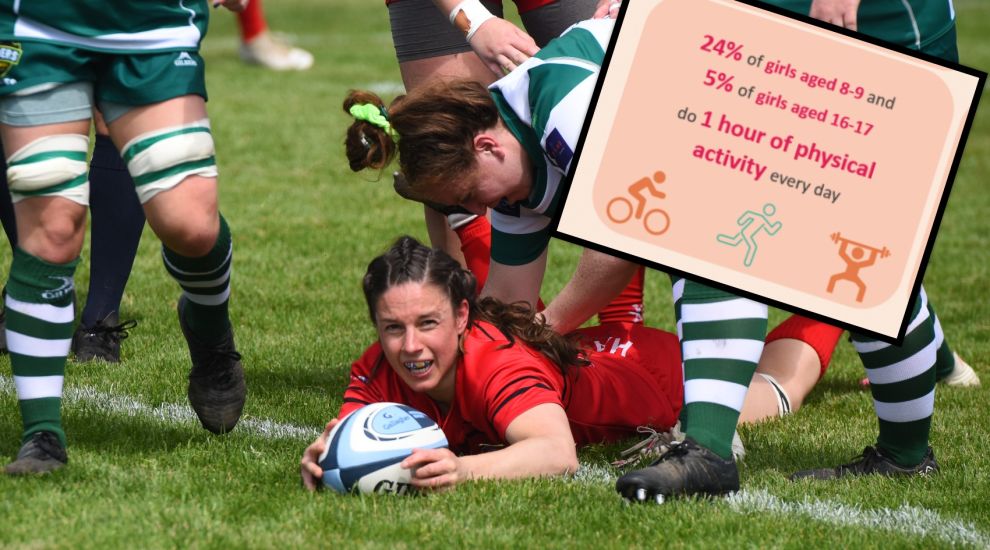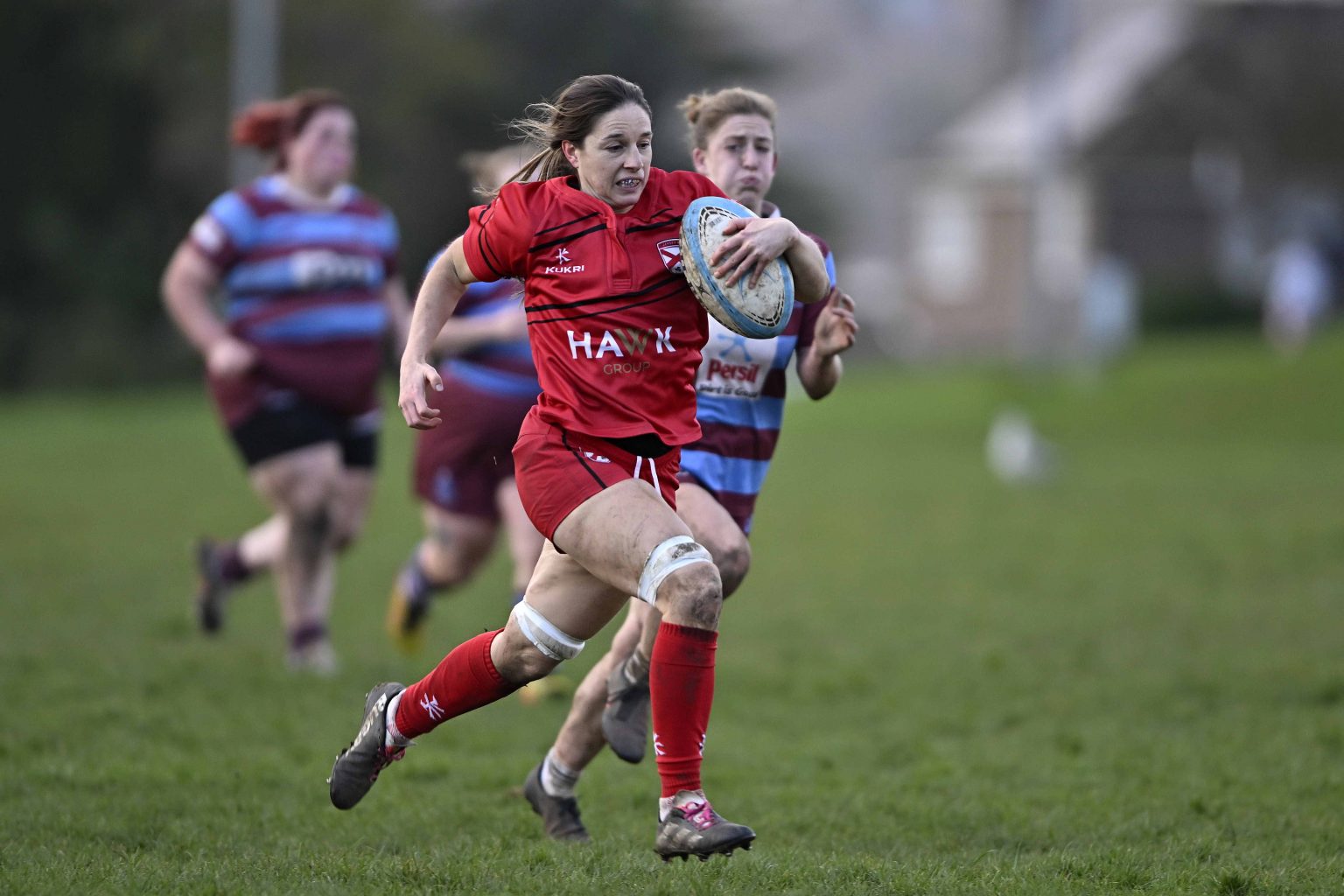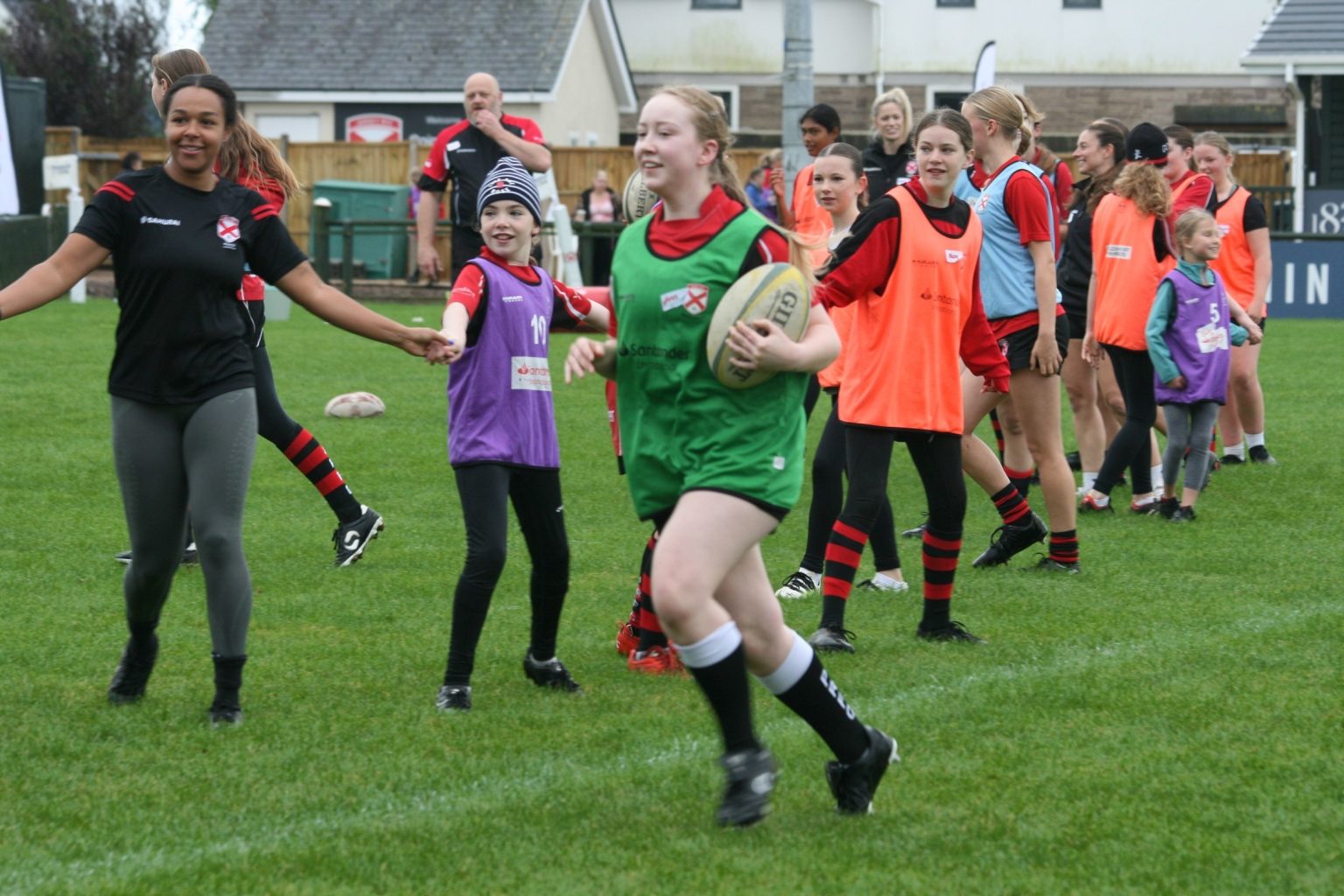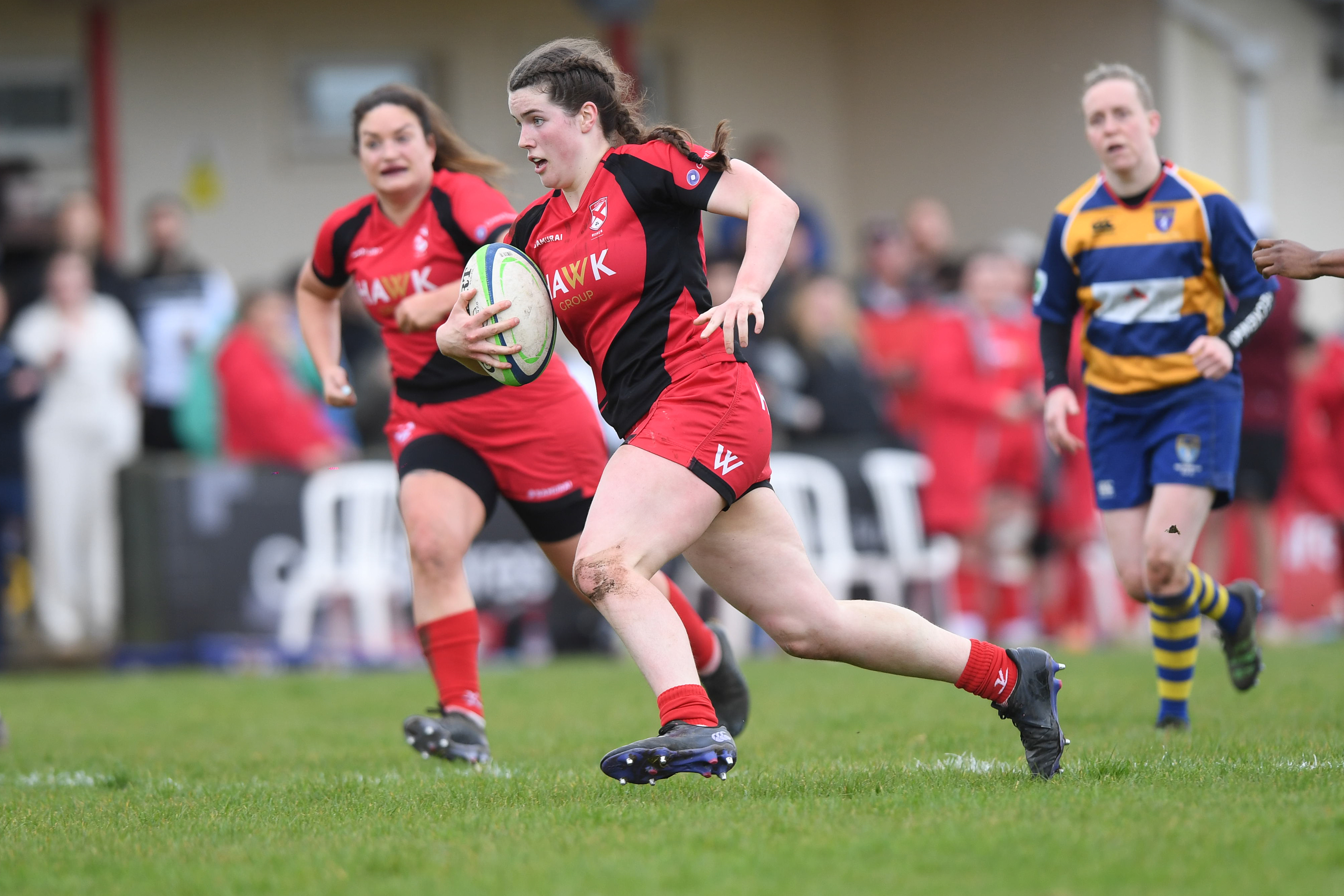


Express has launched a week-long series examining barriers to female participation in sport, after a recent health assessment revealed only 5% of Year 12 girls meet daily exercise guidelines – despite most saying that they want to be more active.
Over the next few days, Express will be looking at rugby, surfing, football, cricket, and the gym as case studies to explore what's holding girls back and how local clubs are working to inspire change.
The Women's Health and Wellbeing Assessment – a report that last month uncovered "systemic gender inequalities" putting women and girls at "a greater risk of poor health" – found that female participation in physical activity declines sharply with age.
While 24% of Year 4 girls (aged eight to nine years old) meet the recommended one hour of daily activity, this drops to just 5% by Year 12 (aged 16 to 17).
These figures fall significantly below England, where 45% of girls aged five to 16 achieve the recommended levels.
The World Health Organisation reports this issue extends beyond Jersey, with only 15% of adolescent girls globally meeting these physical activity targets.
But there’s a clear appetite for change: 69% of Jersey girls expressed a desire to be more active.
The report read: “In Jersey, although girls, when compared with boys, are less enthusiastic about sports, are less likely to attend sports clubs, or, say they enjoy sports, when asked, around two thirds (69%) of girls expressed an interest in engaging in more physical activity.”
Body image and social media pressure emerge as potential obstacles to participation.
The Children and Young People's Survey shows girls have lower self-esteem than boys and experience heightened concerns about appearance.
By Year 12, 67% of girls worry about how they look, while 61% feel pressured by social media – compared to just 18% of their male peers.
But sports club across the island are attempting to break down these barriers.
Today, we kick off our series the efforts of Jersey Rugby Football Club to make rugby more accessible to women and girls.
With women's rugby being one of the fastest-growing sports worldwide and the Women's World Cup taking place in England this summer, the club is hoping that more girls will be inspired to participate…
JRFC women's team captain Katie de la Cloche shared her journey into the sport with Express.
“I had no previous rugby experience and I was actually quite reluctant at first,” she said.
“But my husband, who had played in his teenage years, persuaded me to go to training and give it a go, more from the angle of it being great for fitness and meeting new people.

Pictured: JRFC women's team captain Katie de la Cloche.
Katie, a primary school teacher originally from Newcastle-upon-Tyne, continued: “I played my first game in September 2019 and never looked back.
“I absolutely love playing rugby – it’s like no other sport.”
She also spoke about how the misconceptions about the physicality of rugby could be a potential barrier that discourages women from taking part.
She said: “I think women, like myself, are put off by the idea of physicality and being tackled does look quite brutal to anyone who has ever watched a game of rugby.
"But I would honestly say that it doesn't hurt that much, if at all, and the enjoyment that you get from playing heavily outweighs the aches and pains you may feel afterwards."
She went on to speak about how the club is aiming to encourage more women to join in by creating an “inclusive” atmosphere.
"Our vision is to inspire all women and girls to thrive and feel empowered through the sport," Katie explained.
"We have such a wide range of ages and people from all walks of life that come together.
"When we train and play, we are a team and we have each other's backs, 100%.
"Because of the physical nature of rugby, you really need to trust in your teammates. There are 15 people on the pitch and everyone plays an important role.
“You couldn’t do it alone, and I think that’s why rugby players form such strong bonds with each other.”
Michelle Clark, Minis & Juniors Chair, also explained how JRFC ensures a welcoming environment for the younger girls.
Pictured: Minis & Juniors Chair Michelle Clark.
She said: “We run girls-only rugby from U12s upwards.
"We have a number of female coaches, including current and former JRFC Women players – all of whom are great role models for our girls.
“As well as training and games, our girls run fundraisers, arrange tours, and other events – their annual Prom Dress rugby is legendary!
“Under the guidance of Lead Coach Julia Williams and her team, the girls have formed a cohesive group which actively welcomes and supports newcomers, irrespective of experience or ability.”
She added: “Sessions are tailored to the ability of the group, and nobody gets left behind.
"Contact skills are developed gradually through pad-work and drills, before being put into practice in a game situation. Unlike some other sports, there is a place for everyone in a rugby team, whether your forte is speed, strength, or ball-handling skills.”

Pictured: Jersey Rugby Minis and Juniors recently held their annual Girls Rugby Open Day in a bid to attract new players to their growing squad.
However, barriers still remain.
"Typically, rugby is not offered to girls in school so they may not have considered it as their first-choice sport," said Michelle.
"Young people in Jersey have a pretty wide choice when it comes to sports and leisure activities – but not many of these are free!
"We firmly believe that cost should never be a barrier to any young person taking part in rugby and offer support to families for whom the cost of membership, kit or travel would otherwise be a problem."
And it seems that the club's approach is showing results.
Seren Coombs, who started playing touch rugby at age seven and has since trained with national teams, has witnessed positive change.
The 18-year-old Hautlieu student said: “When I was younger, there were virtually no girls in my age group.
"Now, if you go up on a Sunday, there’s a big group of them. The participation has definitely improved.”

Pictured: 18-year-old Hautlieu student and rugby player Seren Coombs.
Despite this, challenges remain.
"A man in the airport once told me rugby is for men only," said Seren.
"Comments like that are frustrating, but the world is changing. At a grassroots level, rugby is just a bit of fun – it's about building confidence."
Despite the negativity, Seren was keen to encourage new players to get involved.
“The friends you make in rugby are like your sisters – they’re for life," she said.
"We constantly need new players. There’s never enough, and the team thrives on fresh participation.”
TOMORROW: Express looks at the challenges women face when entering gym environments and ways to overcome these barriers.
Follow Express for updates... Sign up to our FREE daily news email now to get all the latest headlines delivered to your inbox each lunchtime...
Comments
Comments on this story express the views of the commentator only, not Bailiwick Publishing. We are unable to guarantee the accuracy of any of those comments.